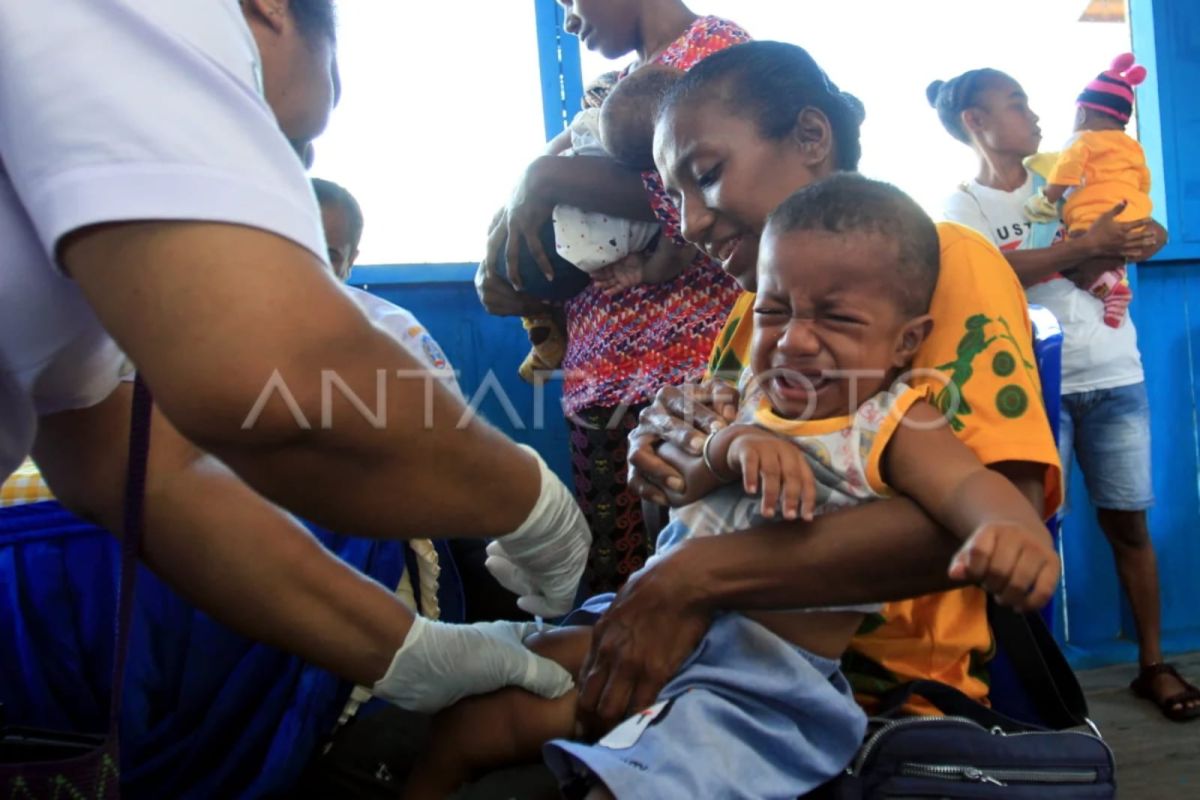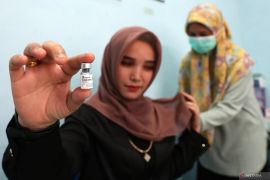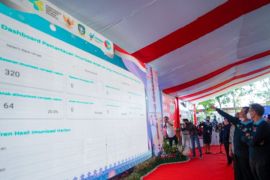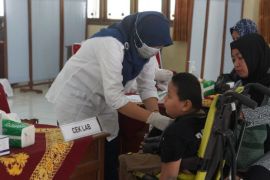The opportunity he mentioned was the chance for Indonesia to become a developed country with its demographic bonus in 2030–2040 while reaching its peak in 2045, or a Golden Indonesia in 2045.
For a nation, 10 to 20 years is not a long time, especially with a definite demographic bonus coming ahead.
The wheels of the economy must continue to move as life goes on, and diseases and epidemics will also become more diverse in the future.
In line with these noble ideals, Indonesia is also threatened by a middle-income country trap if the country’s human resources do not increase their competencies.
One of the important factors in increasing human resources’ skills and competence is the health factor.
The 2021 Indonesian Health Profile reported that 14.5 percent of deaths in babies aged 29 days to 11 months in Indonesia were caused by pneumonia.
In the same case, diarrhea also played a role in 9.8 percent. This number remains consistent until children reach toddler age (12–59 months), where pneumonia contributes a mortality rate of 5.05 percent and diarrhea 4.55 percent.
Research also shows that 95 percent of cervical cancer is caused by infection with the human papillomavirus (HPV), which generally occurs in women of reproductive age.
In Indonesia, data from Global Cancer Statistics (GLOBOCAN) for 2020 stated that Indonesia had the highest incidence and mortality due to cervical cancer among other Southeast Asian countries, with an incidence rate of 24.4 per 100,000 population and a mortality rate of 14.4 per 100,000 population.
Furthermore, the stunting rate in Indonesia, which currently reaches 21.6 percent, is also caused by various health factors.
A number of these diseases could certainly be a threat to a developed Indonesia if all stakeholders in the country do not work together to handle them.
In order to prevent a number of health threats, the Indonesian government has made various efforts to tackle them, including by regulating routine immunity.
Through immunization, a number of diseases’ threats can be neutralized, such as pneumonia, which can be prevented by PCV (Pneumococcal Conjugate Vaccine) immunization, diarrhea by RV (Rotavirus) immunization, as well as cervical cancer, which can be prevented by HPV immunization, for free.
The Indonesian government has provided 14 types of free immunization antigens for the public, especially children, to avoid disease and minimize the risks.
The government has also created a child immunization schedule starting with Complete Basic Immunization for babies aged 0–11 months, Advanced Immunization for children aged 12–24 months, and Advanced Immunization for elementary school-age children through the National Child Immunization Month (BIAN).
The Complete Routine Immunization Program is similar to programs run by other countries such as Thailand, Malaysia, and the Philippines, which also provide 14 types of immunization.
In developed countries, such as England and the United States, they even provided 18 types of immunization for the national immunization program, while Australia even had 19 types of immunization for its citizens.
Complete routine immunization is also carried out based on the recommendations of experts. Various studies have proven that vaccination is safe and effective in preventing certain diseases.
In Indonesia, various types of immunization antigens have existed before, but the public is required to pay since the antigens have not been included in the government’s program.
The Health Ministry then carried out a health transformation to include complete routine immunization in its program.
The existence of this program is also in line with Law Number 17 of 2023 concerning health, where vaccination is the right of every child in Indonesia and must be fulfilled by the government.
Complete routine vaccination also encourages the country to produce domestic vaccines.
Data from the Ministry of Health shows that currently, Indonesia has produced seven of the 14 types of mandatory immunization antigens, while five of the remaining seven are currently in the technology transfer stage.
The target to fully produce 14 types of vaccine antigens domestically is expected to be completed in 2026.
This effort also implements Presidential Instruction Number 2 of 2022 concerning the acceleration of increasing the use of domestic products and products of micro and small enterprises and cooperatives to succeed the proudly made in Indonesia national movement in the implementation of government procurement of goods and services.
If the Complete Routine Immunization Program is optimally implemented by all related stakeholders in Indonesia, the positive impact of this program can be enjoyed by all parties.
The community becomes healthier, and Indonesia receives more income from domestic antigen production and the opportunity to escape from the middle-income trap to achieve Golden Indonesia 2045 as a developed country.
Related news: Ministry lists advantages of complete immunization of children
Related news: Government initiates 2023 National Rotavirus Immunization Program
Translator: Sean Filo M, Resinta Sulistiyandari
Editor: Azis Kurmala
Copyright © ANTARA 2023












